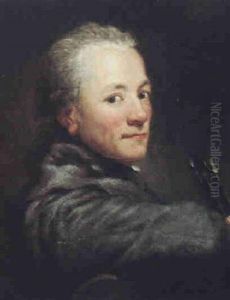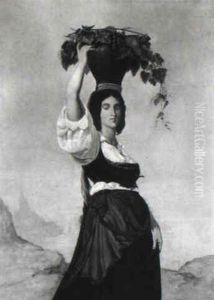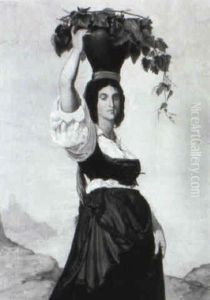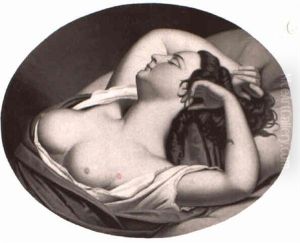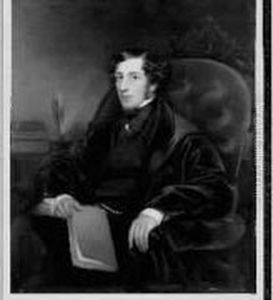Ferdinand Schubert Paintings
Ferdinand Schubert was an Austrian composer, musician and educator, and the elder brother of the renowned composer Franz Schubert. Born on October 18, 1794, in Vienna, Austria, he was not as prolific or as famous as his younger brother, but he nonetheless contributed to the musical landscape of his time.
Ferdinand's musical education began at home under the guidance of his father, who was a schoolmaster with a passion for music. He learned to play violin and piano, and like his brother Franz, he became a choirboy at the Imperial Court Chapel, which afforded him a solid musical and general education. Despite being overshadowed by Franz's genius, Ferdinand pursued a career in music, though he took a more practical approach, focusing on a stable profession in teaching.
After his tenure as a choirboy ended, Ferdinand primarily worked as a school teacher and occasionally composed music. His teaching career spanned many years, during which he held positions at several schools in Vienna. He was known to be a dedicated educator, and he eventually became the principal of a school.
As a composer, Ferdinand Schubert's output included church music such as masses and offertories, as well as some secular works. His style was conservative, rooted in the classical tradition, and did not venture into the Romantic expressiveness that characterized his brother’s compositions. Nevertheless, his works were respected in his time, and he contributed to the cultural life of Vienna through his compositions and performances.
Ferdinand Schubert died on February 26, 1859, in Vienna. While he did not achieve the same level of fame as Franz Schubert, his role as an educator and his contributions to the musical scene of his era were significant. His legacy, while modest compared to that of his brother, is a reminder of the many musicians who play important roles in their communities, shaping the musical education of future generations and enriching the cultural environment of their time.


